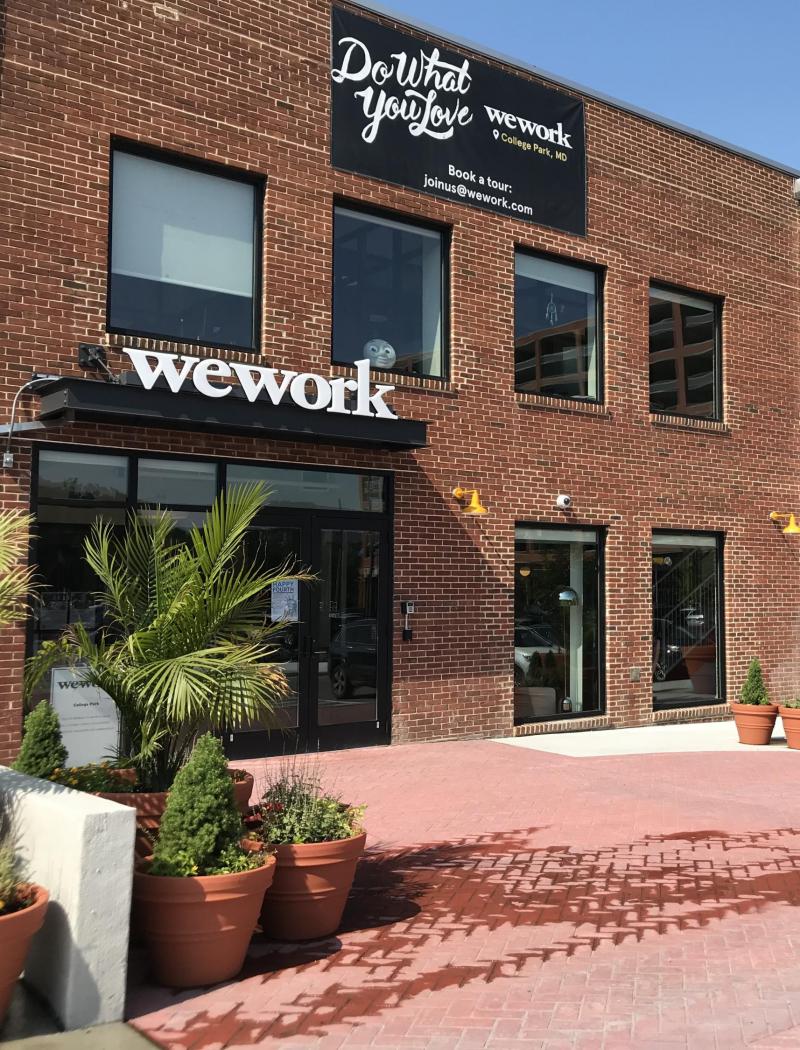We don’t know the exact number of new businesses that launched in the DMV in 2021, but it’ll likely be one for the books when the doors to the year close on December 31.
With oodles of (non-location-specific) funding available, a chance for founders to get back on their feet after pandemic-driven pivots and plenty of community support, 2021 was a huge year for new innovation and entrepreneurship in tech. And it’s likely to keep charging forward in 2022.
In College Park, Maryland, the innovation epicenter is the Discovery District, a University of Maryland (UMD)-adjacent hub created to colocate established companies, startups and the university’s resources in entrepreneurship, all to spur growth and collaboration. Home to space for tech companies like Inky Technologies and BlueVoyant, corporate leaders including Raytheon and public entities like the National Oceanic and Atmospheric Administration, the district offers a mix of office space (including a WeWork), accelerators and incubators for growing teams.
Especially in a spot driven by research and new ideas, the tech scenespe is one that’s constantly evolving. We asked University of Maryland Discovery District Manager Sammy Popat about what lies ahead, and how the successes of 2021 can influence College Park’s future tech and entrepreneurship community.
A year to celebrate
The district saw a number of successes in 2021, but Popat said the most noteworthy was the public offering of IonQ, the quantum computing firm with UMD roots. Cofounded by university professor Chris Monroe, the company went public in September following a merger with special purpose acquisition corp dMY Technology Group Inc. III, raising $635 million and reaching a $2 billion valuation. The company also announced a collaboration with the university to create a $20 million quantum lab within the Discovery District.
For the Discovery District, Popat said, this was an early win in a wider push to create a quantum community in College Park. According to Popat, the district will be prioritizing quantum startups, founders and lab participants in the coming years.

“What that means is we now have had investments to create the Quantum Startup Foundry,” Popat said, referring to the new resource hub for quantum entrepreneurs. “The State of Maryland is supporting us with the discovery funds, so we can actually support quantum computing companies that want to be affiliated and connect with the university.”
Quantum wasn’t the only area of growth in 2021. Popat also pointed to the opening of a new U.S. Small Business Administration Veterans Business Outreach Center in November, in collaboration with Discovery District-based Cybrary, and the launch of an Applied Research Laboratory for Intelligence and Security with the Department of Defense.
What’s next
Alongside the recent successes, Popat and team still have plenty of plans down the road in and around the Discovery District. Nearby, on campus, the Innovate, Design and Engineer for America (IDEA) Factory is set to open next year. While it’s not part of the Discovery District, it has an entrepreneurship incubator, research facilities and the Startup Shell for students (you know, the next gen of tech founders).
Also in the works at the Discovery District is the $300 million, 650,000-square-foot Campus Drive project for research, retail and office space, and footprint expansions from several of the district tenants (Cybrary, IonQ and Loccioni all added to their spaces in 2021). Popat also noted that the development of the Purple Line train will include multiple stops nearby that connect to DC Metro lines and the surrounding suburbs.
It's really about creating the community, connecting the people and hopefully helping good people do good things.
“It’s not all about buildings. It’s really about creating the community, connecting the people and hopefully helping good people do good things. And so, if we can help make those connections, identify those opportunities and connect them to the resources, the policies and the assets that can make them happen, that’s something great.”
Following a huge year for entrepreneurship and venture capital in the area, Popat expects continued growth in 2022 from the distict’s founders. He’s keeping an eye out for fast growth from even more companies, large exits and how companies are shifting. In the new year, he’s anticipating a look into how businesses have reframed in the last two years and what solutions they’re creating in a new marketplace.
“From taking a step back and looking at the pandemic, in times of great disruption, you have companies that come out of that period that are more resilient, that are more innovative and that bring greater ideas and new solutions to the marketplace,” Popat said. “…I do think we have a paradigm shift that’s occurred and some people are getting wise to it.”







